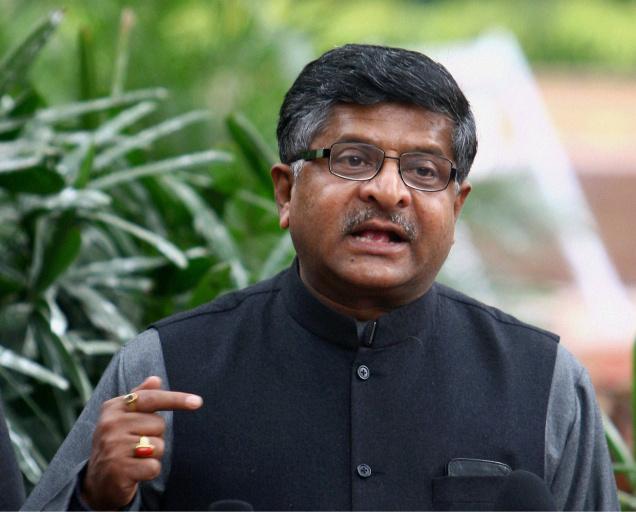 NEW DELHI, August 28; Anticipating its return to power in 2014, the Bharatiya Janata Party has stepped up its engagement with neighbouring countries, expanding political links and conveying its core messages.
NEW DELHI, August 28; Anticipating its return to power in 2014, the Bharatiya Janata Party has stepped up its engagement with neighbouring countries, expanding political links and conveying its core messages.
The principal Opposition party sees ‘substantial commonality’ with the government on its policy towards Sri Lanka and Nepal, even as it criticises the ruling UPA for its approach to China and Pakistan and for “mishandling” ties with Bangladesh.
Ravi Shankar Prasad, BJP’s Deputy Leader in the Rajya Sabha and chairman of the party’s working group on neighbouring countries, concluded a three-day visit to Nepal this weekend. The visit came a little over two months after his trip to Sri Lanka. These countries were chosen, for they were “traditional Indian friends,” and the aim was “to cement ties” and “articulate concerns.”
In an interview to The Hindu, Mr. Prasad gave broad indications of what the BJP’s foreign policy might look like if the party were elected to power. In Nepal, he met President Ram Baran Yadav; the chairman of the interim election government and Chief Justice, Khila Raj Regmi; the former Prime Ministers, Pushpa Kamal Dahal ‘Prachanda,’ Sher Bahadur Deuba, Madhav Kumar Nepal, and Lokendra Bahadur Chand; and Madhesi leaders.
He had multiple messages for Nepal’s political class. “I told all leaders we respect Nepal’s sovereignty and integrity. Two, we respect [a] democratic republican Nepal based on federal principles reflective of its diversity. And three, the exact form of government and nature of federalism should be decided by the people of Nepal.” To institutionalise this, the BJP, like the Indian government, pushed for timely elections to the second Constituent Assembly, now scheduled for November 19.
This is the first time the BJP has publicly expressed support for a federal Nepal — differences over the model of federalism had led to the collapse of the last Constituent Assembly. Nepali political sources from Kathmandu told The Hindu that Mr. Prasad’s acceptance of the republic helped to ease anxieties at a time when Nepal’s extreme right is campaigning to revive the monarchy. The visit also gave the BJP an opportunity to see the democratic transformation of the Maoist party.
Mr. Prasad refrained from asking the Nepali leadership to revert to a Hindu status from a secular state, a traditional stance of the BJP. But he did emphasise the cultural and civilisational links. “As long as there is Pashupatinath in Kathmandu and Vishwanth in Kashi, Janaki in Janakpur and Ram in Ayodhya, this relationship is immutable, profound and beyond party lines.” Nepali leaders who have recently visited Delhi have met BJP president Rajnath Singh.
A common theme of Mr. Prasad’s visits to both Kathmandu and Colombo was a message to the political leadership that while the BJP respected Nepal’s and Sri Lanka’s right to have ties with China, there were certain redlines. “Friendship with Beijing should not, and cannot, be at the cost of India. It cannot compromise India’s strategic interests.” The BJP, while recognising the “improvement” in the situation in Jaffna, urged President Mahinda Rajpakse to ensure that the Tamils of North were given “respect, dignity and equality.”
When asked if there was convergence or difference with the UPA government, the BJP’s neighbourhood-in-charge said, “On Nepal and Sri Lanka, there is a substantial commonality of views but we disagree strongly on the government’s approach towards China and Pakistan.”
The Opposition came under criticism for not supporting the Land Boundary Agreement Bill, which will help to improve ties with Bangladesh.
